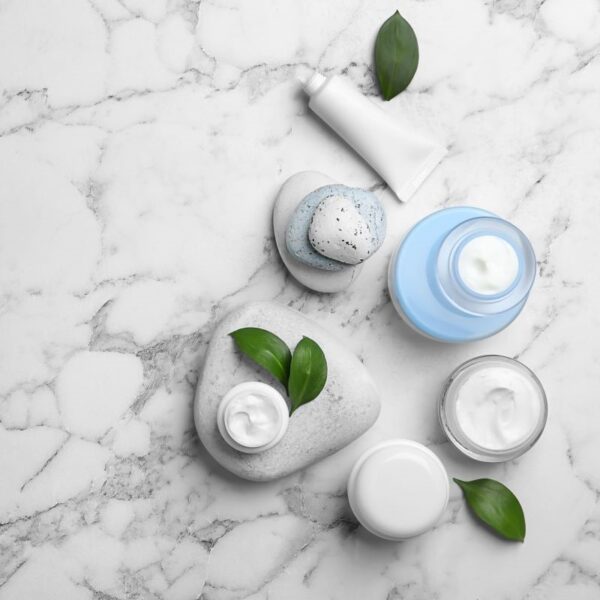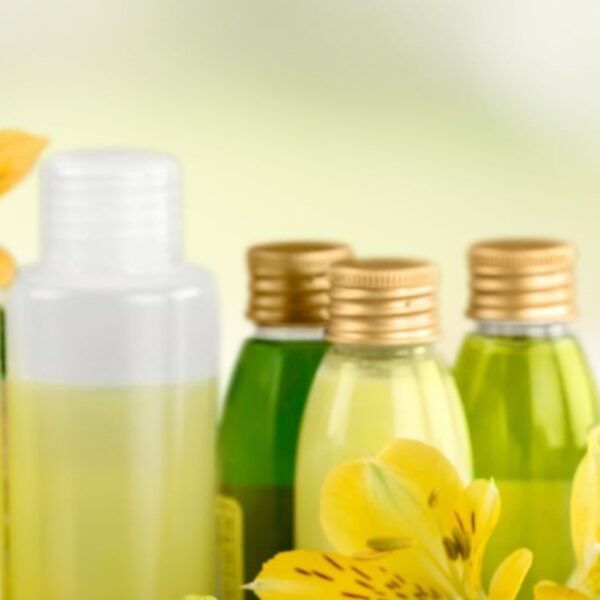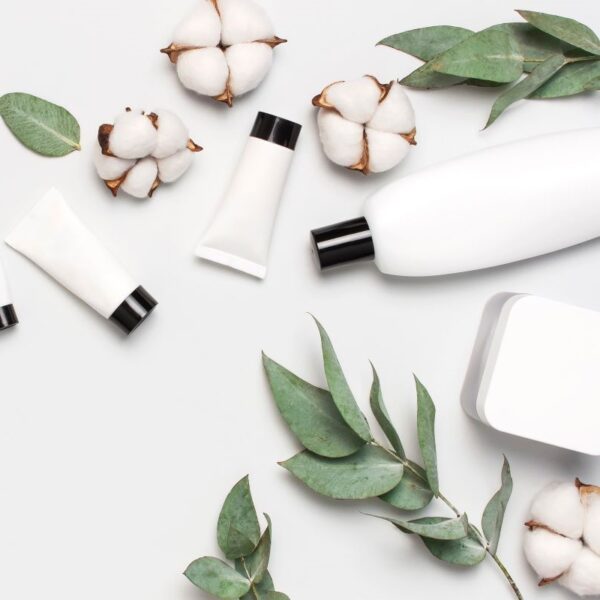Cocamide DEA (Cocamide Diethanolamine) is a nonionic surfactant widely used in personal care products. Derived from the fatty acids in coconut oil, it acts as an emulsifier, foam booster, viscosity modifier, and thickening agent. Cocamide DEA plays a significant role in the personal care industry, since it provides these multifaceted, essential functions. Its benefits also extend to cost-effectiveness, biodegradability, and versatility.
This article explores the function, applications, benefits, and controversies surrounding Cocamide DEA in personal care products.
What is Cocamide DEA?
Cocamide DEA, or cocamide diethanolamide, is a diethanolamine produced by condensing fatty acid methyl esters and diethanolamine. Two processes manufacture these ingredients and may contain varying amounts of free diethanolamine. They are surface active agents used primarily as emollients, thickeners, and dispersion aids in cosmetics, such as shampoos, hair dyes, bath products, and lotions.
Source: Wikipedia
How is Cocamide DEA Produced?
- Cocamide diethanolamide is produced by condensation at a 1:1 or 1:2 molar ratio of the appropriate fatty acids to diethanolamine.
- The 1:2 mixture of fatty acid (or methyl fatty acid) to diethanolamine results in a lower-quality diethanolamide with ethylene glycol and free diethanolamine residues.
- The 1:1 mixture produces a higher quality diethanolamide with much less free amine and is consequently used in lower concentrations than the 1:2 diethanolamide.
- The appropriate fatty acids for manufacturing Cocamide DEA are methyl cocoate, coconut oil, whole coconut, or stripped coconut fatty acids.
Use of Cocamide DEA in the Personal Care Industry
Cocamide DEA is used to manufacture many personal care products in various markets, such as skin care, hair care, bath and shower, color cosmetics, etc. It is a multi-functional ingredient used as a surfactant, foaming agent, viscosity modifier, and emulsifier in the cosmetic industry. Below is an illustration of the individual functions in detail.
Applications in Personal Care Industry
| Function | Applications |
| Surfactant | Cocamide DEA is a non-ionic surfactant used as a significant component in many cosmetic formulations, such as bath oil, shampoo, conditioner, and hair dye. |
| Foam Booster | The use of Cocamide DEA in cosmetic and personal hygiene products is mostly based on the capability of the compound to generate foam. The good foamability of products containing Cocamide DEA contributes to efficiently removing impurities from the body, hair, and other performance aspects. The foamability of Cocamide DEA is particularly noticeable when mixed with anionic surfactants. |
| Viscosity Modifier | Cocamide DEA acts in many products as a rheology modifier, improving the consistency of a cosmetic by changing its viscosity. Rheology modification is essential. |
| Emulsifying Agent | Cocamide DEA is used in personal care products as an emulsifier that helps in keeping the formulation stable and prevents the mixture from separating. |
| Emulsion Stabilizer | Cocamide DEA helps to support the emulsion formation and thus helps improve the product’s stability. |
Product Examples
| Type | Examples |
| Bath and Shower | Bath oils, Bath tablets, Bath salts, Bubble bath, Body wash, Hand soap |
| Hair Care | Hair conditioner, Shampoo, Hair styling products, Hair color |
| Color cosmetics | Blush, Lipsticks |
| Skin Care | Cold creams, lotions, Shaving cream |
Properties of Cocamide DEA
| Physical Form | Liquid |
| Color | Colorless |
| Odor | Faint odor |
| Shelf Life | 2 years |
| Storage Temperature & Conditions | Keep cool and dry place |
| Appearance at 25°C | Viscous yellow to amber liquid |
| pH (10% Aqueous solution at 25°C) | 9.0-10.5 |
| Density at 20°C | 0.99 g/cm3 |
| Viscosity at 20°C, mPa.s. c | 1150 |
| Melting Point | 23-35°C |
| Boiling Point | 168-274°C |
| Acid Value, mgr. KOH/gr | 3.0 maximum |
| Specific Gravity at 20°C | 1.004 |
| HLB Value | 12.558 |
| Solubility (Water) | 5-10 g/100 mL at 18 ºC |
| Stability | Stable. Combustible. Incompatible with strong oxidizing agents. |
Typical Formulations
Moisturizing Shampoo
Here is an example of shampoo with Cocamide DEA along with the % weight of INCI:
| PHASE | INCI Name | TRADE Name | Supplier | % Wt. |
| A | Water | Distilled Water | QS | |
| Polyquaternium-7 | Merquat 550 | Calgon | 0.05 | |
| Sodium Lauryl Sulfate | Stepanol WAC | Stepan | 10.00 | |
| Sodium Laureth Sulfate | Stepanol CS-230 | Stepan | 10.00 | |
| Cocamidopropyl Betaine | Amphosol CA | Stepan | 3.00 | |
| Cocamide DEA | Mackamide C | McIntyre | 1.00 | |
| B | Hydrolyzed Jojoba Protein | JOJOBA PRO-HP® | Desert Whale | 5.50 |
| Chamomilla Recutita (Matricaria) Flower Extract | Chamomile Extract | Active Organic | 0.07 | |
| Aloe Barbadensis Leaf Extract | Aloe Vera Extract | Brooks | 0.03 | |
| Calendula Officinalis Flower Extract | Calendula Extract | Active Organic | 0.05 | |
| Glycyrrhiza Glabra (Licorice) Root Extract | Licorice Extract | Active Organic | 0.03 | |
| C | Citric acid | Citric Acid | QS | |
| Sodium Chloride | Sodium Chloride | QS | ||
| Preservative | QS | |||
| Fragrance | QS |
Source: Knowde
Formulation Procedure
- To a suitably sized vessel, weigh the required amount of Phase A water.
- Begin mixing and add the remaining Phase A ingredients (in order).
- Continue mixing and heat to 75ºC. Mix until uniform.
- Continue mixing and cool to 35ºC.
- Continue mixing and add the Phase B ingredients.
- Continue mixing and add the Phase C ingredients.
- Continue mixing and adjust the pH to 5.5 to 6.0 with a 25% Citric Acid solution.
- Viscosity may be increased by the addition of 10% aq. Sodium Chloride solution.
- Continue mixing until uniform and cool to the desired filling temperature.
Cocamide DEA Formulation Considerations
- The addition of cocamide DEA helps reduce the surface tension in soap formulation. In a formulation study of a transparent soap with 10% cocamide DEA, the properties were enhanced as 69.38% foam ability, 0.146% free fatty acid, pH 8.9, and hardness 569.6 mm/g/s. Making it a suitable gentle skin soap that works on cleansing without ripping off natural skin moisture.
- Cocamide DEA is an efficient cleansing agent whose main characteristic is being a good addition to other (anionic) cleaning agents and working as an excellent foam booster and viscosity builder. It works great in conjugation with anionic surfactants such as ammonium lauryl sulfate, thus enhancing the overall cleansing experience, foam texture, and richness of foam in the final product.
- CDEA can be added to lauryl sulfate-based liquid cleansers to help stabilize and improve foam formation.
- Coconut DEA is an ingredient in various cosmetic formulations, including shampoos, conditioners, bath oils, cooling fluids, lipsticks, soap bars, hair dyes, and different household detergents, in concentrations ranging from 1% to 25%.
- Coconut DEA features good stabilizing properties. Additional advantages of Coconut DEA in hair care formulations include excellent wetting, dispersion, and antistatic performances.
Safety & Regulatory Considerations
| FDA Information | According to the FDA, cocamide DEA is safe for personal hygiene products and cosmetics. |
| EU Information | Cocamide DEA is not included among the ingredients listed as prohibited from use in cosmetic products marketed in the European Economic Community (EEC, 1993). |
| Cosmetic Ingredient Review (CIR) Information | The CIR Expert Panel concludes that Cocamide DEA is safe as a cosmetic ingredient. These chemicals should not be used in cosmetic products containing nitrosating agents. |
Health Effects of Cocamide DEA
| Ocular Irritation | Cocamide DEA was tested for ocular irritation in three female rabbits. A single 0.1 ml aliquot of the solution was instilled into the conjunctival sac of the rabbits’ left eyes, and the untreated right eyes served as controls. The cumulative ocular irritation rating was not reported, but 30% of Cocamide DEA was at least a mild eye irritant. |
| Skin Irritation | Cocamide DEA was tested on six rabbits to evaluate the irritation of a 30% solution of Cocamide DEA in propylene glycol. The dorsal area of each rabbit was shaved, and 0.3 ml of the test material was applied via a patch to either an intact or abraded site. The entire trunk of each animal was wrapped in cellophane, and the patches remained in skin contact for 23 h. Test sites were scored for irritation 1 and 49 h after patch removal. Thirty percent of Cocamide DEA was a moderate skin irritant; the primary irritation index (PII) was 3.1 (max 8). No control data is available. |
| Carcinogenicity | No carcinogenicity data on these ingredients were available in the published literature. |
| Other Considerations | Cocamide DEA is known to be a mild skin irritant but not a sensitizer or photosensitizer. |
Safety & Toxicity of Cocamide DEA
Identification Numbers
| Chemical Name | Coconut oil acid diethanolamine |
| CAS Number | 68603-42-9 |
| EC Number | 271-657-0 |
| EINECS Number | 271-657-0 |
Acceptable Limits or Maximum Usage
- Products containing Cocamide DEA are applied to or come in contact with all exterior portions of the body, including skin, hair, nails, eyes, and mucous membranes.
- These products remain in contact with the body for minutes up to several days and are applied anywhere from once every few months to several times daily.
The maximum usage level of Cocamide DEA in the personal care industry as per the CIR is as follows.
| Category | Usage Level |
| Baby Shampoo and other baby products | 1-5 % |
| Bath oils, Bath tablets, Bath salts | 1-5 % |
| Bubble bath and other bath preparation | 5-10 % |
| Hair conditioners, Permanent waves, Hair shampoo | 1-10 % |
| Blushes and lipstick | 1-5 % |
| Face, body, and hand skin care preparations (excluding shaving preparations) | 1-5 % |
| Shaving cream (aerosol, brushless, and lather) | 0.1-1 % |
| Skin cleansing preparations (cold creams, lotions, liquids, and pads) | 1-5% |
| Hair dyes and color | 10-25 % |
Source: CIR Safety
Fun Facts About Cocamide DEA
- Cocamide DEA is derived from the fatty acids in coconut oil. Despite its somewhat chemical-sounding name, it has a connection to something as natural and tropical as coconuts.
- As a surfactant, Cocamide DEA can reduce the surface tension of a liquid. This might sound interesting, but it allows it to make bubbles and foam in products like shampoo. The science of creating that perfect lather is more complex than it may seem!
- Cocamide DEA is a natural multitasker. It doesn’t just serve one purpose in personal care products; it acts as an emulsifier, foam stabilizer, and viscosity increaser. This kind of multi-functionality is rare and exciting in cosmetic chemistry.
- Cocamide DEA is biodegradable. While the environmental impact of personal care products can be a concern, the biodegradability of Cocamide DEA means that it breaks down in the environment rather than persisting and potentially causing harm.







